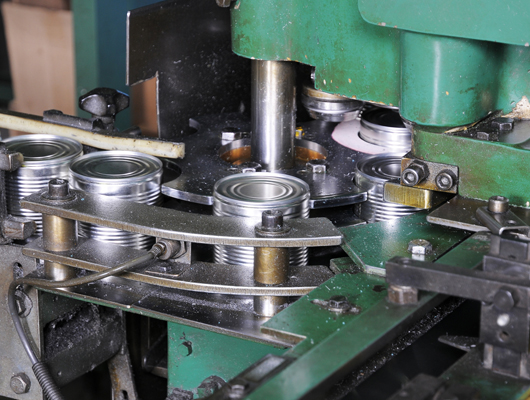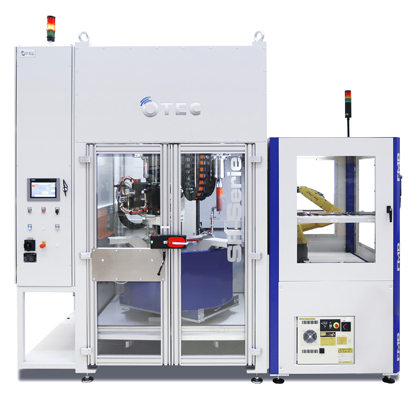Polishing of can seamers
Cost-effective finishing with perfect results

Can seamers are used to seal cans. The key functional surface of the tool is the forming surface or groove which joins together the edges of the can and the lid by forming a seam. Can seamers are used in large quantities all over the world. In order to ensure that the tools always maintain a consistent quality, the forming surfaces must be regularly repolished. The service life of the tools and the results obtained by them are detrimentally affected by wear during normal operation. A polished surface, especially in the grooves, is the main objective of the finishing process.
The peak roughness values of the tool are smoothed and rounded. This reduces the force required to form the seam and also reduces the amount of lubricant needed. The material to be processed becomes less susceptible to fracture since improved flow characteristics during forming exploit the elastic and yield limits of the material more effectively. Good surface finishing reduces the coefficient of friction, resulting in less wear at the tool surface. This enables tool life to be increased considerably. In many cases, it can even be doubled. The finishing and wet polishing of tools has previously been carried out mainly by hand. Because of the time taken and material used, this is a very expensive process; furthermore, the fluctuations involved mean that results are not reliably reproducible. With its mass finishing machines, OTEC offers a first-class alternative to manual processing, one that delivers more precise and more consistent results than those obtained by hand. Surface finishing in the SF stream finishing machine not only cuts down on cost-intensive manual work, but also creates a surface of the highest quality with absolute reliability. And the amount of material removed from the forming surfaces during polishing is reduced to a minimum.
Typical process parameters
• Machine: SF 3
• Media: M4/300
• Processing time: 30 minutes
• Roughness before finishing: Ra 0,44 µm
• Roughness after finishing: Ra 0,05 µm
Because it is much faster than conventional methods, the OTEC process delivers considerable cost benefits. The processing forces involved can be very great and enable extremely fine surfaces to be obtained, even in small grooves or flutes. For companies manufacturing items in large quantities, the stream finishing units can be equipped with suitable automation systems.





